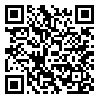Wed, Dec 17, 2025
[Archive]
Volume 15, Issue 1 (3-2025)
ASE 2025, 15(1): 4654-4666 |
Back to browse issues page
Download citation:
BibTeX | RIS | EndNote | Medlars | ProCite | Reference Manager | RefWorks
Send citation to:



BibTeX | RIS | EndNote | Medlars | ProCite | Reference Manager | RefWorks
Send citation to:
Keyhanpour M, Mirabedini F S, Ghassemi M. Measurement and Analysis of Particulate Matter Emitted from Diesel Vehicles Using a Simplified Testing Cycle. ASE 2025; 15 (1) :4654-4666
URL: http://ase.iust.ac.ir/article-1-693-en.html
URL: http://ase.iust.ac.ir/article-1-693-en.html
K. N. T. University of Technlogy
Abstract: (10407 Views)
This study develops and validates a simplified testing methodology aligned with UNECE Regulation No. 49 to quantify particle number (PN) emissions from diesel vehicles. A modified World Harmonized Vehicle Cycle (WHVC) was implemented, incorporating steady-state operational segments (urban: 21.3 km/h, rural: 43.6 km/h, motorway: 76.7 km/h), and applied to evaluate 51 Iranian-manufactured diesel vehicles. The tested fleet comprised heavy-duty trucks, buses, and pickup trucks equipped with diverse propulsion systems (e.g., ISF3.8s5154, OM457LA.IV) and after-treatment technologies, including SCR, DOC, and DPF. Results demonstrate that original equipment manufacturer (OEM)-installed DPFs reduced PN emissions by 7000-fold compared to non-DPF-equipped vehicles (2.49 × 10¹⁰ vs. 1.74 × 10¹⁴ particles/km; p < 0.001). Euro VI-compliant vehicles exhibited the lowest emissions (6.01 × 10¹⁰ particles/km), outperforming Euro V and Enhanced Environmentally Friendly Vehicle (EEV) standards. These findings underscore the necessity of adopting OEM-grade filtration systems and enforcing stringent emission regulations, such as Euro VI, to mitigate particulate pollution in urban environments. The methodology provides a replicable framework for emerging markets to align with global emission compliance protocols.
Type of Study: Research |
Subject:
Standards and tests
Send email to the article author
| Rights and permissions | |
 | This work is licensed under a Creative Commons Attribution-NonCommercial 4.0 International License. |






